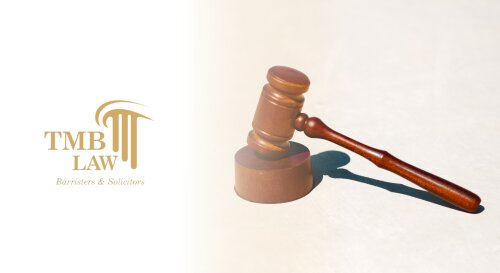Best Domestic Violence Lawyers in Oshawa
Share your needs with us, get contacted by law firms.
Free. Takes 2 min.
Free Guide to Hiring a Family Lawyer
List of the best lawyers in Oshawa, Canada
About Domestic Violence Law in Oshawa, Canada
Domestic violence is a serious issue affecting many individuals and families in Oshawa, Canada. It involves any form of physical, emotional, psychological, or financial abuse inflicted by one partner onto another within a domestic setting, such as marriage or cohabitation. Recognizing the gravity of this issue, both federal and provincial laws are in place to protect victims and ensure justice is served.
Why You May Need a Lawyer
If you are facing domestic violence, there are several situations where legal help might be indispensable:
- Immediate Safety Concerns: If you are in immediate danger, a lawyer can assist you in obtaining urgent court orders like restraining orders or emergency protection orders.
- Child Custody Issues: Domestic violence can complicate child custody arrangements. Legal advice is often necessary to protect the safety and welfare of children involved.
- Divorce and Separation: Legal assistance can help navigate the complexities of marital dissolution, especially when domestic violence is a factor.
- Criminal Charges: Whether you are a victim pressing charges or facing accusations of domestic violence, legal representation can ensure your rights are protected.
- Financial Support: A lawyer can assist you in obtaining financial support or alimony post-separation.
Local Laws Overview
Domestic violence laws in Oshawa are governed by both federal statutes and Ontario's provincial legislation:
- Criminal Code of Canada: This law includes specific provisions for offenses related to domestic violence, such as assault, sexual assault, and criminal harassment.
- Ontario's Family Law Act: This act provides for emergency protection orders, custody and access arrangements, and spousal support in cases involving domestic violence.
- Victims' Bill of Rights: This provincial law ensures that victims are treated with dignity and respect and have access to necessary support and information.
- Children's Law Reform Act: This act governs child custody and access, ensuring that the best interests of the child are prioritized, especially in cases involving domestic violence.
Frequently Asked Questions
1. What constitutes domestic violence in Oshawa?
Domestic violence encompasses a range of abusive behaviors, including physical, emotional, psychological, sexual, and financial abuse, between intimate partners or family members.
2. How can I get a restraining order in Oshawa?
You can apply for a restraining order through the Family Court. A lawyer or local legal aid can assist you with the application process, providing necessary documentation and evidence.
3. What should I do if I am in immediate danger?
If you are in immediate danger, call 911. Law enforcement can provide immediate assistance and help you access emergency services and protection orders.
4. What support services are available for victims of domestic violence in Oshawa?
There are several support services available, including shelters, counseling, legal aid, and crisis hotlines. Organizations such as Durham Region Domestic Violence/Sexual Assault Care Centre offer comprehensive support.
5. Can domestic violence affect child custody decisions?
Yes, evidence of domestic violence can significantly impact child custody and access decisions, with the primary concern being the safety and well-being of the child.
6. How do I press charges against an abuser?
You can report the abuse to the police, who will investigate and potentially lay charges. A lawyer can provide assistance and representation throughout the legal process.
7. What is the role of a lawyer in domestic violence cases?
A lawyer can provide legal advice, help obtain protective orders, represent you in court, and assist with related issues like divorce, child custody, and financial support.
8. Can I get legal aid for domestic violence cases?
Yes, legal aid is available for eligible individuals facing domestic violence. Legal Aid Ontario provides services and can help you with finding a legal representative.
9. How can I prove domestic violence in court?
Evidence can include medical records, police reports, witness testimonies, photographs of injuries, and any other documentation that supports your case.
10. What happens if I am falsely accused of domestic violence?
If you are falsely accused, it is crucial to seek legal representation immediately. A lawyer can help you navigate the legal system, present your defense, and protect your rights.
Additional Resources
Below are some valuable resources and organizations that can provide support and information:
- Durham Region Domestic Violence/Sexual Assault Care Centre
- Durham Region Non-Profit Housing Corporation
- Legal Aid Ontario
- Ontario Women’s Justice Network
- Local police departments and emergency services (911)
Next Steps
If you need legal assistance in a domestic violence situation, consider the following steps:
- Seek immediate safety and contact emergency services if necessary.
- Reach out to local support services and shelters.
- Consult with a lawyer specializing in domestic violence cases. Legal Aid Ontario can assist if you are eligible for legal aid.
- Ensure you gather and document any evidence related to the abuse.
- Attend all court hearings and follow legal advice to maximize your protection and rights.
Remember, help is available and you do not have to navigate this difficult situation alone.
Lawzana helps you find the best lawyers and law firms in Oshawa through a curated and pre-screened list of qualified legal professionals. Our platform offers rankings and detailed profiles of attorneys and law firms, allowing you to compare based on practice areas, including Domestic Violence, experience, and client feedback.
Each profile includes a description of the firm's areas of practice, client reviews, team members and partners, year of establishment, spoken languages, office locations, contact information, social media presence, and any published articles or resources. Most firms on our platform speak English and are experienced in both local and international legal matters.
Get a quote from top-rated law firms in Oshawa, Canada — quickly, securely, and without unnecessary hassle.
Disclaimer:
The information provided on this page is for general informational purposes only and does not constitute legal advice. While we strive to ensure the accuracy and relevance of the content, legal information may change over time, and interpretations of the law can vary. You should always consult with a qualified legal professional for advice specific to your situation.
We disclaim all liability for actions taken or not taken based on the content of this page. If you believe any information is incorrect or outdated, please contact us, and we will review and update it where appropriate.












